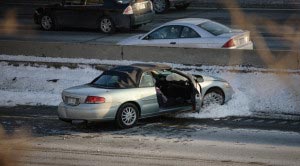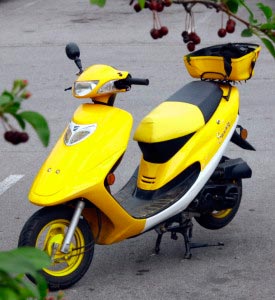When the police pull you over and end up arrested and charing you with OUI, they are witness to the fact that you were operating your vehicle.
But sometimes a person is accused of an OUI even though no one has seen you driving.
This can happen in cases such as:
- There was an accident, and no one is behind the wheel when the police arrived.
- There was an accident where the parties were taken to the hospital, so the police didn’t interview the defendant at the scene.
- There was a 3rd party report about an incident, and a license plate is recorded, but the police don’t witness anyone driving.
If there was no witness, you may not be arrested but can still receive an OUI citation in the mail to appear at a clerk magistrate’s hearing.
In every Massachusetts OUI case, the Commonwealth must prove the 3 basic elements of the crime to get a conviction. They must prove that you were
- Operating a Motor Vehicle,
- On a public way,
- While under the influence of intoxicating liquor.
In most OUI cases, the first 2 elements are automatic. But cases where the incident doesn’t start with an arrest after a police vehicle stop, there can be interesting legal defense possibilities.
Operation of a motor vehicle is the most core element. If the Commonwealth can’t prove you driving, you can’t be convicted of drunk driving.
However, there are some elements of proving operation that doesn’t necessarily mean you were driving but are sufficient proof to convict you, anyway.
For example, if you had “operational control” of the vehicle, that is sufficient proof of driving under the law. Operational control is can be defined as being found behind the wheel with the keys in the ignition. Even if the car engine isn’t running, you can still be convicted of operating under the influence.
The Prosecutor Must Prove You Were Driving To Convict You of Drunk Driving (Beyond a Reasonable Doubt)
Sometimes at trial, I will suggest an alternate theory of what happened. But most of the time, I just point out the gaps in the prosecutor’s evidence and let the jury see the reasonable doubt on their own.
So here are some specific examples of OUI cases I’ve won because the police never saw my client driving.
The case of the “Vehicle operating erratically”.
I had a client in Pittsfield where the police were notified by an anonymous caller to be on the lookout for a vehicle operating erratically. The police later found the vehicle parked in my client’s driveway, with a blown-out tire and a damaged rim.
The officer knocked on the door and questioned my client, and observed a moderate odor of alcohol, and slurred speech. He admitted to having had one or two beers.
He agreed to perform some field sobriety tests and failed. He also failed a breath test with a .21, or over 2 ½ times the legal limit.
The officers at no point saw my client behind the wheel of his car. However, in this case, we did not specifically deny that he had been driving since there was no one else there.
Our theory of the case was, as soon as he got home, my client immediately took several quick shots of liquor. That is why he failed the breath test when they took him to the station.
However, a jury concluded there was simply not enough evidence to prove that he was impaired at the time he may have been behind the wheel.
The case of the motor scooter
I had a client, a 24 yr old man who was issued a citation to a clerk magistrate’s hearing for OUI drugs and Negligent Operation. He also had a previous OUI in another state.
The police found my client disoriented on the side of the road, near a motor scooter. The police detected the smell of alcohol and our client admitted to drinking. He was taken to the hospital and the police issued the citation.
If the complaint was issued and he was found guilty, he would be facing a two-week inpatient program, a 5 yr loss of license and a required Interlock device installed in his car when eligible for license reinstatement.
However, I was able to convince the Clerk not to issue the citation, since whether or not he had been driving the scooter was not proven. There were no witnesses to him on the scooter, and the police didn’t do a thorough examination of what actually happened.
The client saved hundreds of dollars in court costs the inconvenience of losing his license, and additional criminal procedures to fight the case.
The Case of the Belligerent 3rd Offense
I had a case in the Worcester District court on a 3rd offense OUI, where the defendant faced mandatory jail time if found guilty.
My client was at home in his driveway and officers pulled in behind him. He was sitting in his truck. When he saw the officers, he tried to go into his house. The officers said that he was speeding. They noted in their police report that he was unsteady on feet and he would not listen to the officer and tried to walk past/through to get to the house. He was described as belligerent and argumentative, and he refused to do any field sobriety tests or breath test.
However, because the officers couldn’t state that they saw him drive the vehicle, a jury found him not guilty.
The Case of the Totaled Car
I had a case in the Quincy District court where my client was found 100 feet away from his completely totaled car, and he was clearly drunk and was walking away from the scene. He was facing a second offense OUI charge.
My client did not make any incriminating statements or suggest anything about what may have happened to the police. However, a judge concluded that there was not enough evidence to prove that it was he who was driving his vehicle at the time of the accident.
What about other criminal charges where the police never saw the driver?
Yes, I defend lots of charges of leaving the scene of an accident (hit and run) and negligent operation of a motor vehicle (reckless driving) at Clerk Magistrate’s hearings.
All the same, evidence applies. The police must be able to prove that you were the driver of the car to prove any criminal motor vehicle offense.
As you can see, there are many chances to win your OUI case if the police can’t definitively say that you were driving.
Please give me a call if you find yourself in this situation. I can help!



